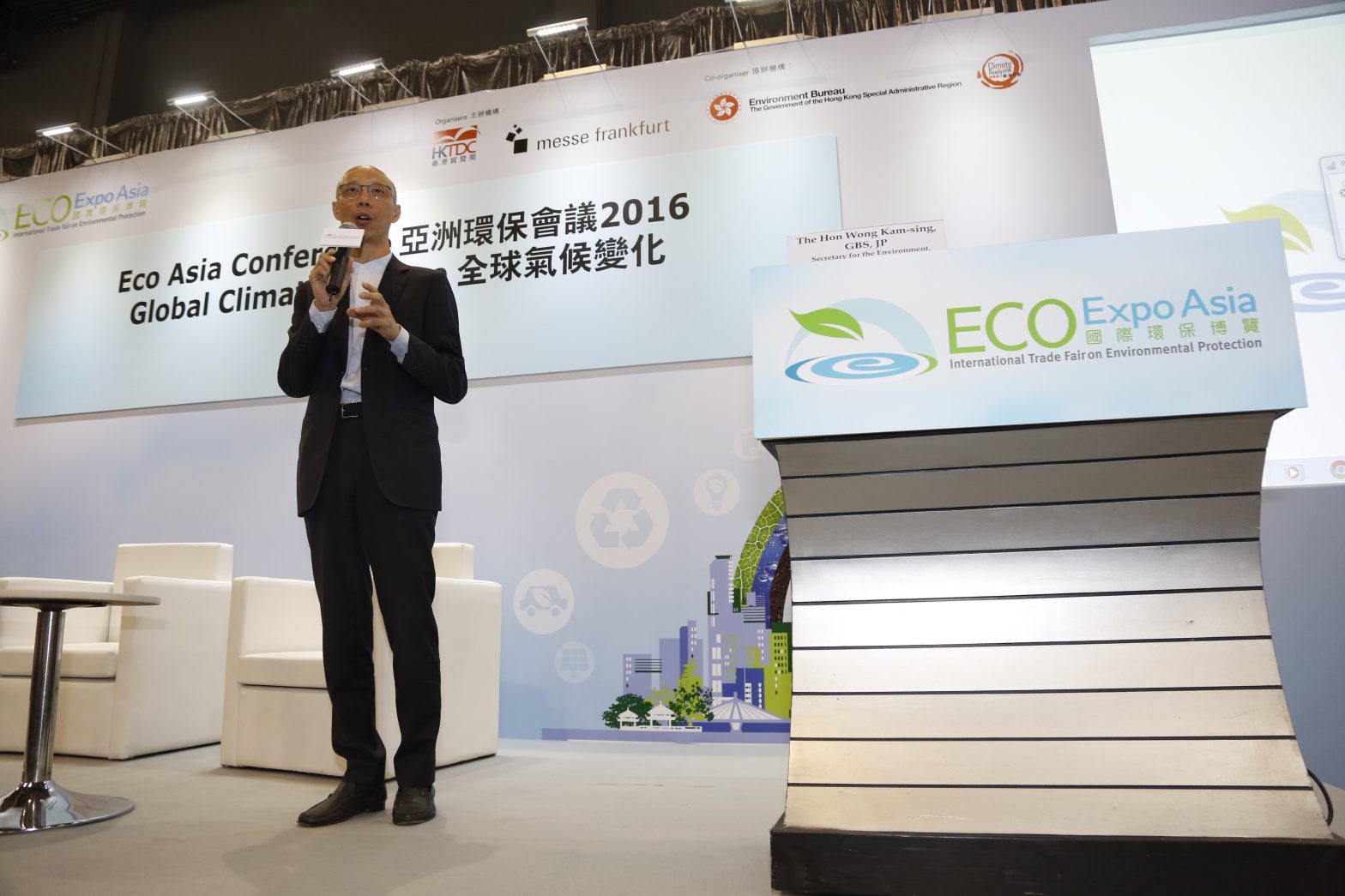
Photo: AHO6163
Hong Kong outlines ambitious carbon reduction plan
26 October 2016
by Jonathan Andrews
The Hong Kong Environment Secretary, Kam-sing Wong, has outlined plans to reduce the city’s carbon footprint from 50 to 60 percent by 2020 through a variety of measures during the 11th Eco Expo Asia in Hong Kong (26 to 29 October).
The plan, originally released in 2015, has since gathered momentum following the COP21 meeting in Paris, said Wong.
“After Paris we set up a committee with all policy secretaries and all departments to work together to set up a long-term climate strategy,” he said. “The energy saving plan for the built environment 2015-2025 is the first of its kind that Hong Kong has published.”
The document aims to reduce energy intensity by 40 percent by 2025 through a mixture of legislation, providing incentives to business and a broader education campaign to the general public.
The Hong Kong government is leading by example as all government buildings and public housing must now adhere to strict green building certification by which all new private buildings must also follow.
Wong later announced that next year the city would open its first ‘food waste to energy’ anaerobic digester. The new digester will support the recently opened ‘sludge to energy’ plant that is already in operation, increasing the city’s renewable energy supply.
“Hong Kong does not have a lot of open land to be able to compost food waste, so this is a double win,” Wong added.
Hong Kong is also helping neighbouring cities in mainland China across the Pearl River Delta by offering incentives to factories to increase energy efficiencies and phase out old heavy polluting technologies that often blight Hong Kong’s air.
In an afternoon panel discussion Liu Hui, Deputy Director of the Provincial Environmental Protection Department in neighbouring Guangdong Province, outlined how greater cooperation with Hong Kong, Macau and Guangzhou, in water management–of which all three cities share the same drinking water source–and air quality has helped improve both across the Delta.
“We all have an interest to protect it and so we are now sharing information better,” he said. “We are monitoring shared results and adopting new common standards.”











